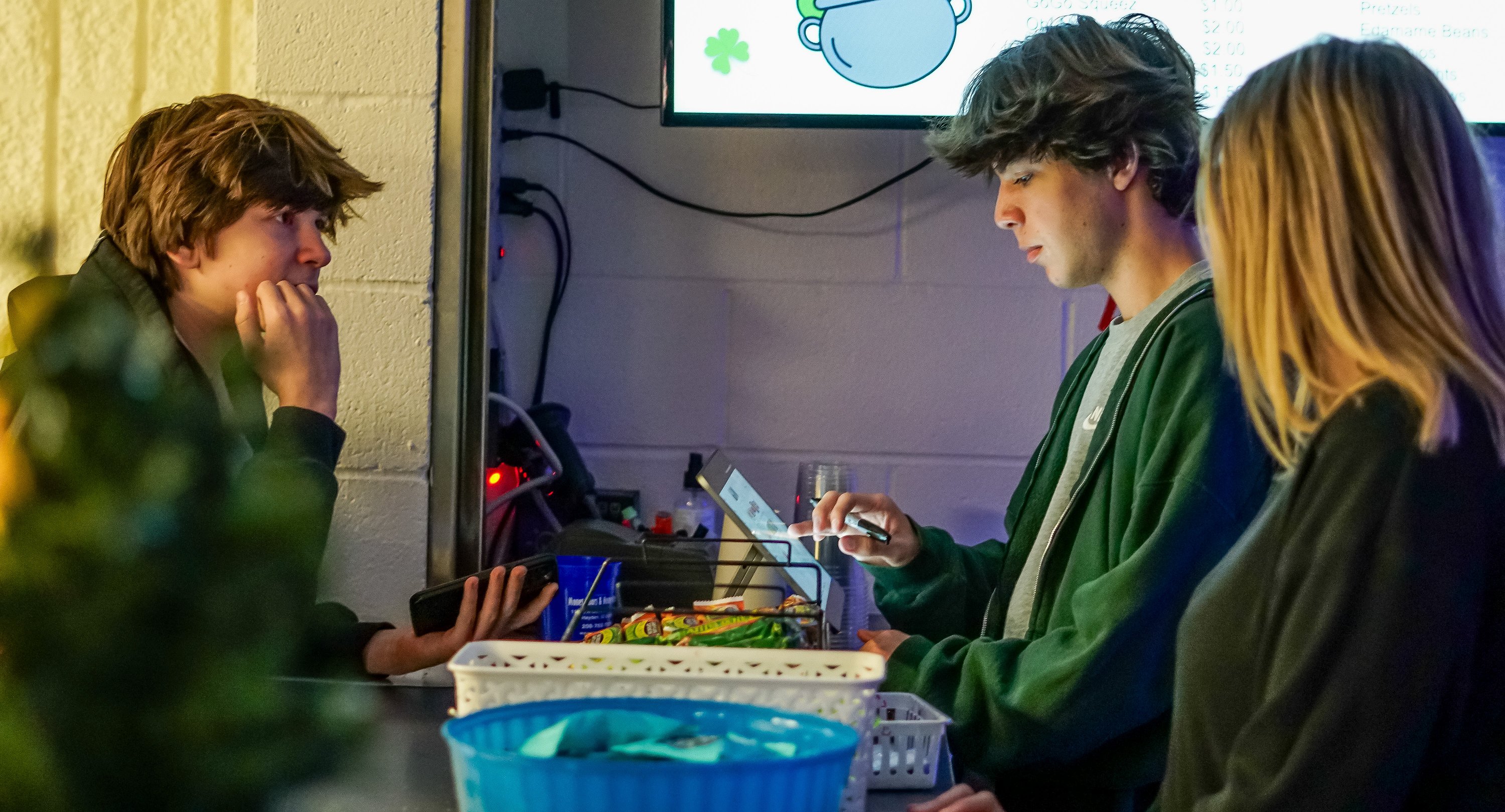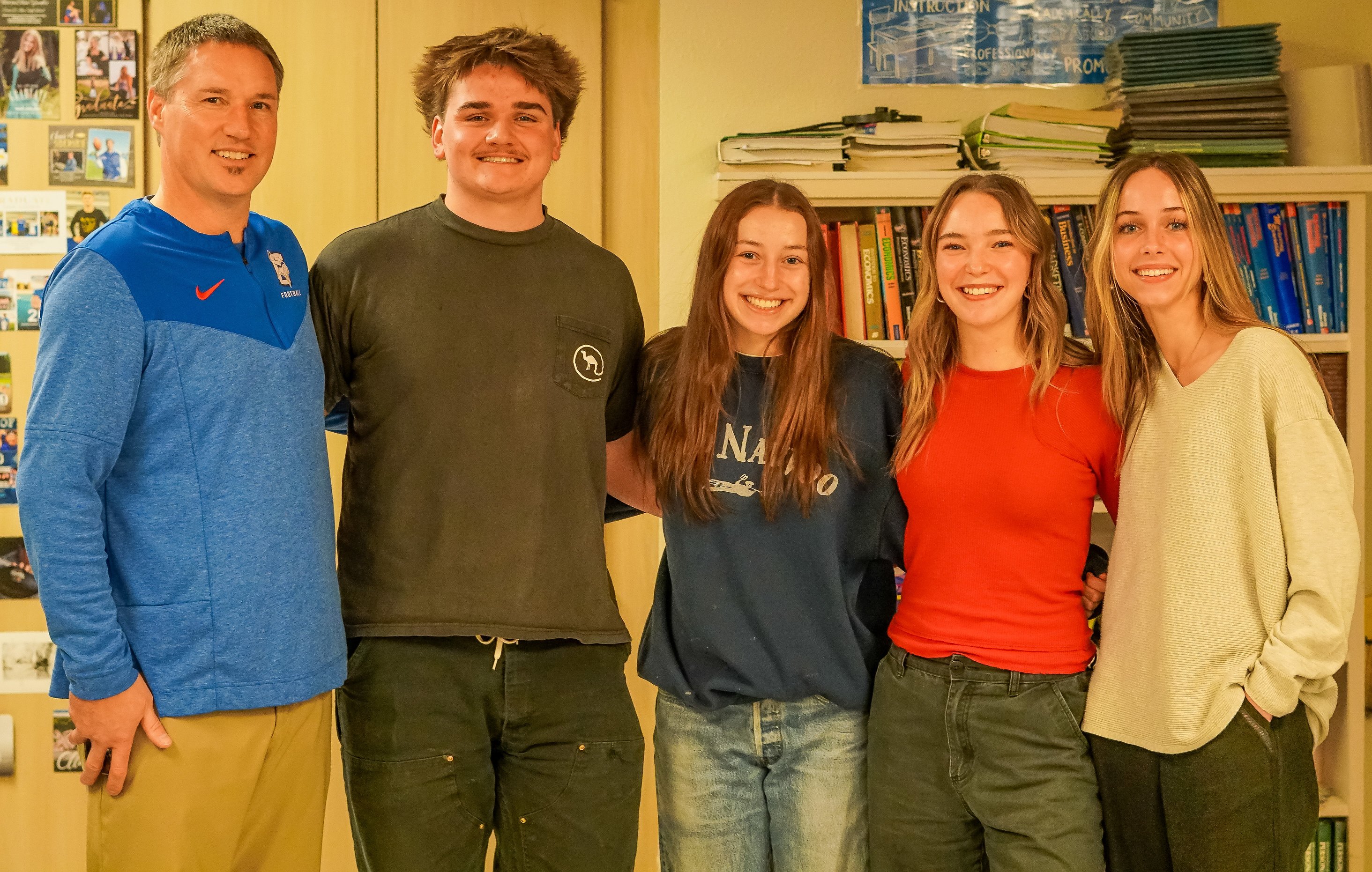Growing the next generation of business leaders
MATTHEW STEPHENS/NIBJ Staff Writer | NIBJ | UPDATED 1 year, 9 months AGO
Some people want to make sure they have an outlet to get a job as they move into adulthood, but not everyone just wants to get a job.
Many young people growing into adulthood want to be creators and bring opportunities and ideas to the world around them.
Many of these students take classes relevant to entrepreneurship, and some join clubs to compete in regional, state or national events.
North Idaho College doesn’t have any full-term programs for students, but Dean Miles, assistant manager of Business and Entrepreneurship said the college has component classes to complement an associate degree in applied sciences in management.
He said NIC offers opportunities that have students put a mock business together and run it through start to finish.
“It’s kind of Shark Tank style,” Miles said. “They put an idea together, build a presentation, and eventually go in front of a panel to ask for project funding.”
He said students get a good realistic grasp of what it is like to be under that pressure, but the skills they develop immediately transfer into real-world strategies.
He said the growth phase of building a business is typically the hardest part.
Miles said the college also helps students learn how to “survive and thrive” through that growth phase.
“We have a small business administration outlet on campus as well,” Miles said. “Students can find a coach to help mentor them through some of the tougher phases.”
Some students will transition right over from high school.
Coeur d’Alene High School has a Distributive Education Clubs of America outlet for students to join, and it can help them earn both high school and college credit. The club also runs retail stores where the students can work and build experience to put on a resume.
Antonio Carrico runs the club, and teaches students business oriented classes. He teaches three junior level classes, and one senior class.
“In the junior year we do a marketing and economics class,” Carrico said. “And economics is a graduation requirement so students are able to get class credits while being part of the club.”
We also partner with NIC, and students can get dual credit for some of the coursework.
Carrico, who has run the DECA group for seven years, said one of his major goals is to teach skills that can be directly applied into real world situations.
He said through the club his students can participate in National Economics Challenge competitions.
Annie Wilson is one of those students, and she said gained more interest after competing.
Wilson, 18, said she initially got into the club during her junior year because she was able to earn her economics credit in a fun atmosphere. Now a senior, she manages the retail store as part of the DECA program.
Wilson said she doesn’t have end goals of owning a business, because she wants to go into the medical field.
“These skills can be applied to any walk in life,” Wilson said. “Even in the medical field, people can use these skills to help develop a business plan to start up a private practice.”
“Plus these classes just make people smarter with finances,” she added.
Ann Marie Dance also participates in DECA, and she has a final goal of pursuing a business degree.
Dance, a 17-year-old senior, said she modeled her project after the International Eye Institute, a nonprofit organization that helps provide charitable eye care for people in Guatemala.
Dance said her father is an eye surgeon, and is also part of the organization.
“I have been on some of the mission trips,” Dance said. “And to see the work they are doing to help others is very inspiring.”
Dance said she took the reins to help restructure the nonprofit's website and help them expand its social media presence.
Her end goal is to pursue a business degree that can help her build her personal assets so she can help others with the skills she developed.
The real world application of DECA is what drew Andi Jane Howard to join and stay in the club.
Howard, 18, is a senior and the student body president, said DECA lessons are crucial for marketing success. She said learning time management was one of the most challenging aspects.
“Being so deeply involved with the school means I always have a lot going on,” Howard said. “And being able to learn how busy business professionals learn to adapt has been instrumental for me.”
One commonality between these students is they all attribute the ability to learn and grasp the lessons to the efficiency and clarity of Carrico as a teacher.
Carrico said as the real world market evolves, the coursework to introduce students to the changing environment will adapt to continue teaching each new generation of business leaders.
“He really essentially teaches us how to be adults,” Howard said. “The way Carrico teaches paints a clear picture of how each and every class can be put into a real-life situation.”
Programs and clubs can be found in several area schools and institutions.
Lakeland High School in Rathdrum connects students with Kootenai Technical Education Campus.
School counselor Lorain Ryan said technical school offered for Lakeland juniors and seniors.
There are a variety of technical or trade programs at KTEC. Ryan said options include HVAC, computer repair, auto tech, diesel, construction, welding and millwright.
She said students can sign up for health programs as well.
"Students who choose to attend KTEC spend half of their day at KTEC learning in a real-world work environment and half their day taking core classes at Lakeland," Ryan said. "Students learn that applying math, English and science knowledge is important to a real-world work environment."
She said entrepreneurship is also offered as an elective for students that don't go through KTEC.
"Technical programs, elective options and core classes help our students develop their interests as well as find their strengths," Ryan said. "Discovering their interests and strengths helps students gain confidence and make decisions about what to pursue after high school."





